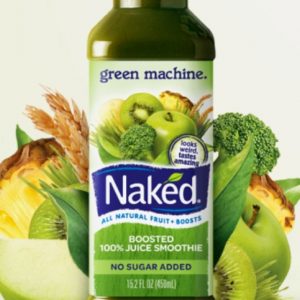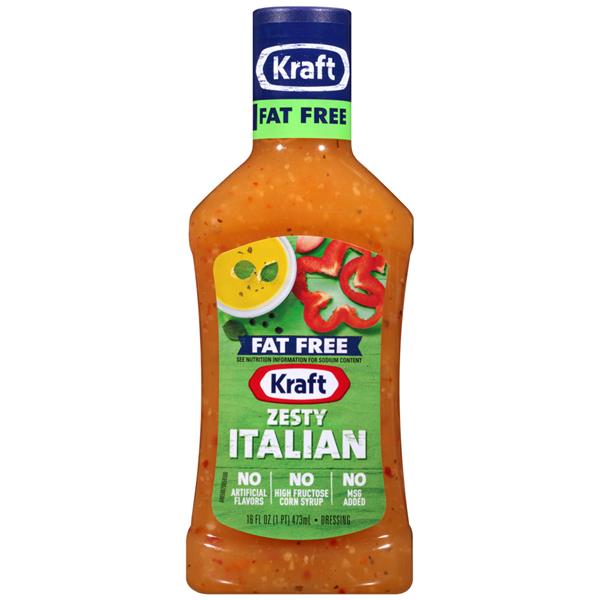Why The “Health Food” Industry is Making You Fat: Deceptive Marketing Exposed!
Having worked with thousands of clients from around the world doing online fitness coaching, I have come to a few shocking conclusions about the food industry.
This article is going to be a huge eye opener for you – and I guarantee you will never look at the food industry or the Grocery Store the same way!
What shocks me to the core is that the “health food” industry is incredibly deceptive – and is the single biggest reason why most people are fat.
Seriously – it's probably not your fault you have a few extra lbs. of belly fat and have struggled to lose weight, because unless you study this stuff for your career like me you are likely to have been tricked.
In this shocking article, I’m going to not only show you 3 so called “Health Food” that are making millions of people fat – but also show you a very “Unhealthy” option that has less total calories and would be a better choice on a flexible dieting plan!
Here is the biggest take-away I want you to have from this article.
Flexible Dieting is the best strategy for long-term weight loss without losing your mind!
Before I blow your mind and show you why Nacho Cheese Doritos can be a better choice for weight loss than one of the most popular brands of kale chips, I’m going to explain a simple concept I want you to remember throughout this article.
When it comes to losing weight there is only 1 thing that matters: Is your body burning more calories than it is receiving.
A lot of things, of course, go into this – but it's important not to overcomplicate weight loss because with flexible dieting it's actually brain dead simple when you know how many calories you need to consume to be in a deficit.
Let’s say for example you figure out how many calories your “maintenance level” is – all you need to do is consume about 300-500 less than this every single day for a few weeks and you will melt away body fat like a hot knife through butter!
For those of you who are willing to do a little bit of elementary school math, this is incredibly easy to do.
In fact, I’m going to walk you through it right now.
Step 1 you are going to calculate your BMR – which means the amount of calories you would burn if you had zero activity all day and just stayed in bed.
You can head on over to this link to get that number.
http://www.bmi-calculator.net/bmr-calculator/
Now that you have this number you are going to use the Harris Benedict equation.
The Harris Benedict equation is a formula that uses your BMR and then applies an activity factor to determine your daily caloric needs.
Take your BMR that you figured out in step 1 – and plug it in based on your activity level.
http://www.bmi-calculator.net/bmr-calculator/harris-benedict-equation/
This is approximately how many calories your “Maintenance Level” is – and if you use an easy calorie tracking app like “My Fitness Pal” you will find it incredibly easy to count your calories throughout the day.
This is really important for staying on track, especially if you want to be able to enjoy desserts like peanut butter cups, ice cream, and even cookies!
Remember this once again – you will lose body fat if you consume fewer calories than the number you figured out above – even if those calories are coming from junk food and sugar!
A doctor once lost weight on a Twinkies, powdered donuts, and nutty bars to prove this point.
Now I don’t recommend this and I actually recommend an 80/20 flexible diet (80 percent healthy 20 percent unhealthy) – but you get the point!
Why the “Health Food” Market is Making You Fat
Now that we established how important total calories are – it's important that you know many health foods in disguise have extremely high-calorie counts.
Let me show you 3 shocking comparisons (there are hundreds more) to further illustrate this point!
Shocking Food Comparison #1
1 Cup of Granola Cereal Vs. Reeses Peanut Butter Cups
| Total Calories: 360 | Total Calories: 232 |
| Total Fat: 10.5 | Total Fat: 14 Grams |
| Carbohydrates: 60 | Carbohydrates: 25 |
| Sugar: 15 | Sugars: 21 Grams |
| Protein: 15 | Protein: 5 Grams |
Shocking Food Comparison #2
Naked Green Juice Vs. Mountain Dew
| Total Calories: 360 | Total Calories: 232 |
| Total Fat: 10.5 | Total Fat: 14 Grams |
| Carbohydrates: 60 | Carbohydrates: 25 |
| Sugar: 15 | Sugars: 21 Grams |
| Protein: 15 | Protein: 5 Grams |
Shocking Food Comparison #3:
Kale Chips Vs. Doritos Chips
| Calories: 280 | Calories: 240 |
| Fat: 14 | Fat: 14 |
| Carbohydrates: 26 | Carbohydrates: 26 |
| Protein: 12 | Protein: 3 |
Now – I am not saying that Peanut Butter Cups, nacho cheese Doritos, and Mountain Dew are healthy – but I am saying they have LESS TOTAL CALORIES.
Consuming less total calories is the single most important aspect to losing weight.
The thing that really screws up most dieters is that they get so caught up in “eating perfect” – and if they have say a bag of Doritos, or sneak a few peanut butter cups in the office they essentially “fall off the wagon” – and think that they just ruined their diet.
This couldn’t be farther from the truth! This is why I encourage a flexible dieting approach, and to carefully read the nutrition label of many so called “health foods.”
Here is a quick guide so you are not tricked by the food industry.
Think of the following words on a package of food at the grocery store as a Giant Red Flag!
1.No Added Sugar
Saying no added sugar basically means they didn’t add any of the white stuff, but there could still be a ton of insulin spiking sugar from the fruit juices – like in the Naked Green Juice example.
Just look at how incredibly deceptive this marketing is! You would think you are consuming the world’s greatest weight loss beverage – with the power of extreme antioxidants and kale!
Then you take a look on the back of the nutrition label and you see although it says “no sugar added” – it contains 27 grams of sugar per serving – and 0 grams of fiber!
Next time you see any type of “power smoothie” that is pre-packaged and has some vegetables and fruit on the packaging – make sure you check out how many total calories and grams of fruit sugar there are – as it likely contains more calories than a can of soda!
2. Gluten Free/ 0 Grams Trans Fat
 This was the High calorie snack that I compared to Reeses Peanut Butter cups above. Check out this incredibly deceptive food marketing.
This was the High calorie snack that I compared to Reeses Peanut Butter cups above. Check out this incredibly deceptive food marketing.
You would think you are eating one of the healthiest snacks in the world – and you are actually consuming one of the highest calorie snacks imaginable!
There are actually a ton of red flags to look out for here:
Gluten free, “all natural/ Non-GMO” – 0 Grams Trans Fat, made with whole grains/Supergrains – all of this CAN mean good things, but 9 times out of 10 its code word for a super high calorie snack.
You are far better off indulging in a Reese’s Peanut Butter cup every so often than consuming this calorically dense cereal!
3. Fat Free
This is the label on a ton of food labels such as fruit snacks and even gummy bears. Just cause something does not contain any “dietary fat” – does not mean that it won’t actually make you fat.
Saying something is “fat-free” on a nutrition label usually, means it's “high in sugar/carbohydrates” – which will spike your insulin and make you fat.
This is one of the most clever tricks of the corrupt food industry.
Things to look out for that are “fat-free” but pack in a ton of sugar:
Salad dressings, fruit snacks, gummy bear and high sugar candy, snack cookies, crackers, ice Cream, cheeses, and the list goes on and on!
My goal for this article was to make your dieting life a lot more enjoyable – and to show you that you can consume candy, cookies, chips, and whatever your heart desires and still easily stay on track with your weight loss plan.
By knowing your maintenance calories, and using a simple calorie tracker you can enjoy some delicious treats and still stay on track with your weight loss goals!
Consistently consuming fewer calories than you are taking in is a far more effective weight loss strategy than trying to eat “100 percent clean.”
I hope you enjoyed this article – and please share with a friend who is trying to lose weight and needs an eye opener on the deceptive health food industry!



